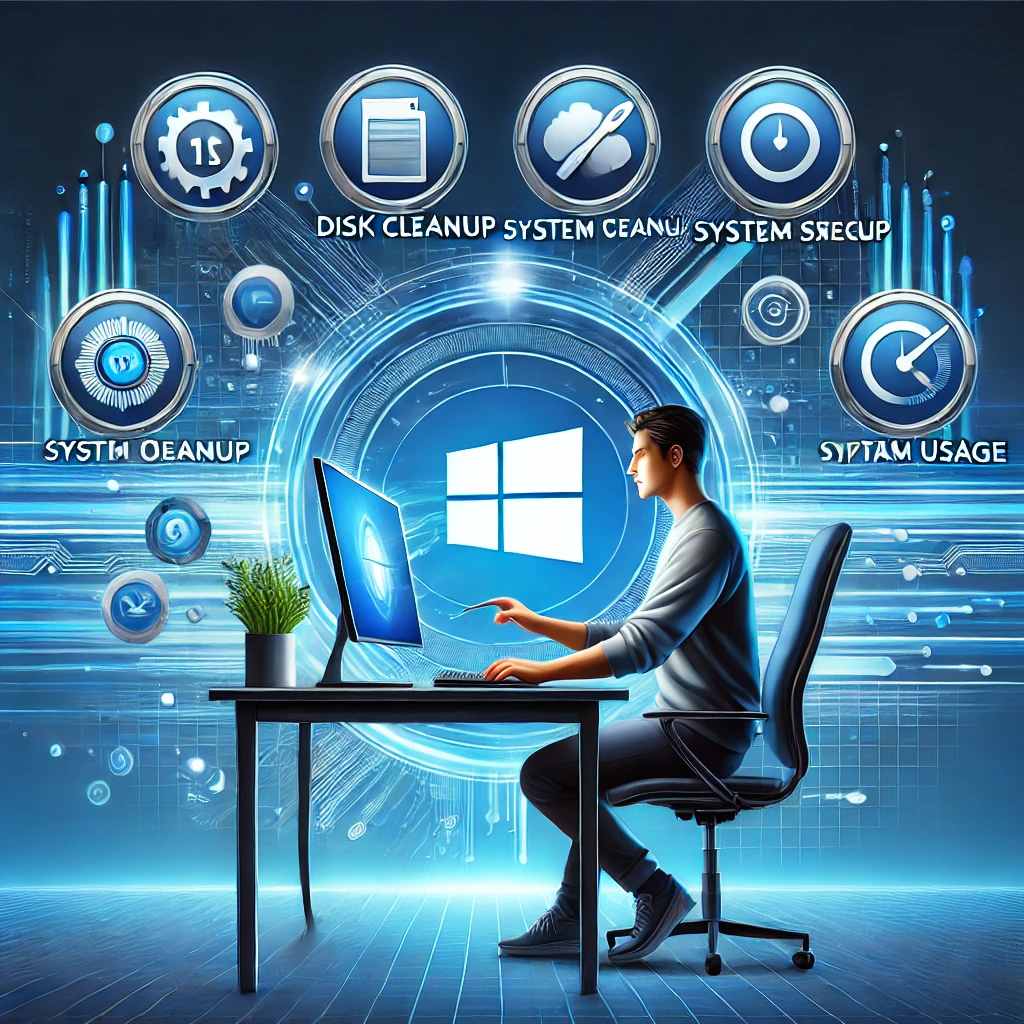
Speed Up Your Windows 11 PC Like a Pro - Ultimate Guide
Introduction: Why Your Windows 11 PC is Slowing Down
If you’ve noticed your Windows 11 PC is running slower than it should, don’t worry—you’re not alone! Over time, PCs tend to get bogged down with excess files, unnecessary programs, and outdated settings. But fear not—this guide will show you the best tips and tricks to speed up your Windows 11 computer, boost productivity, and make the most out of your device. Let’s dive in!
1. Start with the Basics: Clean Up Your Disk Space
Before diving into complex fixes, it’s essential to clear out some space. Use the built-in Disk Cleanup tool to delete temporary files, system cache, and old files you no longer need. You’ll be amazed at how much quicker your system runs after this simple step.
2. Upgrade Your Hard Drive: SSD vs. HDD
If you’re still using an old HDD (Hard Disk Drive), it might be time to upgrade to an SSD (Solid State Drive). SSDs are much faster than HDDs and can give your PC an instant speed boost. SSD vs. HDD: Which is better for you? The answer is clear: SSD wins hands down for speed, reliability, and power efficiency!
3. Disable Unnecessary Startup Programs
Does your PC take forever to boot up? The culprit could be a bunch of startup programs running in the background. Head over to Task Manager (Ctrl + Shift + Esc), go to the Startup tab, and disable any non-essential programs. This will significantly reduce boot time and free up your PC's resources.
4. Adjust Visual Effects for Better Performance
Windows 11 is beautiful, but those fancy visual effects can slow down your computer. To improve performance, go to System Settings and adjust for best performance. You can always enable them again if you miss the aesthetics, but it’s worth trying for a speedier experience.
5. Use AI Tools to Boost Productivity
Want to make your Windows 11 PC feel like a productivity powerhouse? Utilize AI tools designed to help you streamline tasks, like automatic scheduling, task prioritization, and even content generation. Tools like ChatGPT can help you draft emails, reports, and much more in seconds!
6. Clean and Optimize Your Registry
For those feeling tech-savvy, cleaning your Windows registry can remove broken links and other clutter. While this is an advanced step, using a trusted registry cleaner can help improve overall speed and system responsiveness.
7. Manage Power Settings to Optimize Battery Life
If you’re using a laptop, managing your power settings can have a massive impact on performance. By switching to “High Performance” mode in Power & Sleep Settings, you can ensure your PC is using its full potential—perfect for gaming or heavy tasks.
8. Secure Your PC and Personal Data Online
While it’s tempting to focus only on performance, don’t neglect security! With the rise of cyber threats, it’s crucial to protect your personal data. Install antivirus software, use a VPN (beginner’s guide to using VPNs), and keep your operating system up to date to guard against hackers.
9. Best Free Apps to Boost Productivity
Whether you're working from home or school, free productivity apps can help you stay organized and focused. Download free apps like Evernote for note-taking, Trello for task management, and Google Keep for reminders. These tools will keep you on track without costing you a dime!
10. Improve Your Gaming Experience with the Right Hardware
Want to game smoothly on your Windows 11 PC? Make sure your hardware is up to the challenge. Choosing the best laptop for gaming (find out what to look for!) and upgrading your RAM or GPU can make all the difference when it comes to frame rates and graphics performance.
11. Keep Your Windows 11 Updated
Windows updates aren’t just about new features; they also include performance improvements and security patches. Make sure you’re always running the latest version of Windows 11 to keep your PC running smoothly.
12. Limit Background Processes with Task Manager
Some apps run quietly in the background and eat up valuable resources. Use Task Manager to monitor your system’s performance and close any unnecessary programs. This will free up memory and CPU power, speeding up your PC.
13. Monitor Your System with Tools to Track Screen Time
If you’re wondering what’s taking up so much time on your PC, tools like RescueTime can help track your screen time and identify apps that are eating up resources. It’s a great way to get more organized and reduce unnecessary distractions.
14. Best Chrome Extensions for Students
If you’re a student, Chrome extensions can be a huge help. From citation generators to grammar checkers, there are tons of extensions that can make your study sessions more efficient. Make sure to explore and find the best Chrome extensions for students that suit your needs!
15. Regularly Restart Your PC for Optimal Performance
Finally, don’t underestimate the power of a simple restart! Regularly rebooting your PC can clear up temporary files, stop memory leaks, and ensure that your system runs at peak performance.